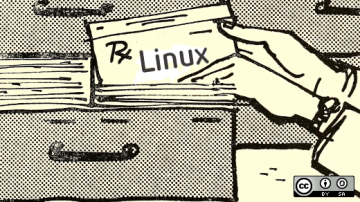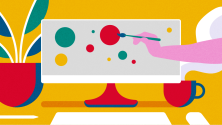My first steps into Linux happened around 2003 or 2004 when I was a student. The experiment lasted an hour or two. Being used to Windows, I was confused and quickly frustrated at having to learn the most basic stuff again.
By 2018, I was curious enough to try Ubuntu before settling on Fedora 29 on an unused laptop, and to get a Pi3B+ and Pi4, both currently running Raspbian. What changed? Well, first of all, Linux has certainly changed. Also, by that time I was not only curious but more patient than my younger self by that time. Reflecting on this experience, I reckon that patience to overcome the perceived usability gap is the key to Linux satisfaction. Just one year later, I can confidently say I am productive in both Windows as well as (my) Linux environments.
This experience has brought up two questions. First, why are more people not using Linux (or other open source software)? Second, what can the savvier among us could do to improve these numbers? Of course, these questions assume the open source world has advantages over the more common alternatives, and that some of us would go to ends of the Earth to convince the non-believers.
Believe it or not, this last issue is one of the problems. By far, I am not a Linux pro. I would rather describe myself as a "competent user" able to solve a few issues by myself. Admittedly, internet search engines are my friend, but step-by-step I accumulated the expertise and confidence to work outside the omnipresent Windows workspace.
On the other hand, how technophile is the standard user? Probably not at all. The internet is full of "have you switched it on" examples to illustrate the incompetence of users. Now, imagine someone suggests you are incompetent and then offers (unsolicited) advice on how to improve. How well would you take that, especially if you consider yourself "operational" (meaning that you have no problems at work or surfing the web)?
Introduce them to the Raspberry Pi
Overcoming this initial barrier is crucial, and we cannot do so with a superiority complex. Personally, I consider the Raspberry Pi one of our best opportunities to invite more people to the open source community. The Raspberry Pi’s simplicity combined with its versatility and affordability could entice more people to get and use one.
I recently upgraded my Pi3B+ to the new Pi4B, and with the exception of my usual reference manager, this unit fully replaces my (Windows) desktop. My next step is to use a Pi3B+ as a media center and gaming console. The point is that if we want people to use open source software, we need to make it accessible for everyday tasks such as the above. Realizing it isn't that difficult will do more for user numbers than aloof superiority from open source advocates, or Linux clubs at university.
It is one thing to keep preaching the many advantages of open source, but a more convincing experience can only be a personal one. Obviously, people will realize the cost advantage of, say, a Pi4 running Linux over a standard supermarket Windows PC. And humans are curious. An affordable gadget where mistakes are easy to correct (clone your card, it is not hard) will entice more and more users to fiddle around and get first hand IT knowledge. Maybe none of us will be an expert (I count myself among this crowd) but the least that will happen is wider use of open source software with users realizing that is is a viable alternative.
With curiosity rampant, a Pi club at school or university could make younger workers competent in Linux. Some of these workers perhaps will bring their SD card to work, plug it into any Raspberry Pi provided, and start being productive. Imagine the potential savings in regards to IT. Imagine the flexibility of choosing any space in the office and having your own work environment with you.
Wider use of open source solutions will not only add flexibility. Targetting mainly Windows environments, your systems will be somewhat safer from attacks, and with more demand, more resources will pour into further development. Consequently, this trend will force propriety software developers to up their game, which is also good for users of course.
In summary, my point is to reflect as a community how we can improve our resource base by following my journey. We can only do so by starting early, accessibly, and affordably, and by showing that open source is a real alternative for any professional application on a daily basis.









3 Comments